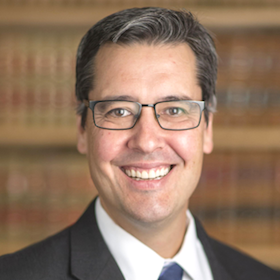Ohio: Protect the Voter Rolls from Illegal Purges That Make it Harder For Eligible Citizens to Vote
By Leigh Chapman, Senior Policy Advisor at Let America Vote
Overview
One way to make it harder for people to vote is to remove them from the voter rolls altogether — and this happens much more often than you might think. These so-called “purges” of the voter rolls are often done in the name of “keeping them up to date,” but in fact can be ordered by elected officials to kick certain voters off the rolls. This activity is supposed to be carefully regulated by the federal National Voter Registration Act (NVRA) and Help America Vote Act (HAVA), and laws in individual states. At the state level, however, elections officials across the country have acted to “update” their voter rolls and remove hundreds of thousands of eligible voters. Without the full protections of the Voting Rights Act — which was gutted by the infamous Shelby County v. Holder decision — legal advocacy organizations like the ACLU and Demos are forced to file lawsuits on behalf of those affected. However, all too often, the damage is already done, and elections take place before the courts can restore the registration of those who have been unlawfully purged.
Why it matters
Purging the voter rolls is one of the most powerful tactics for anyone who wants to suppress the vote. It is dangerous precisely because it is easy to justify to the public in the name of “keeping our voter rolls up to date.” Everyone agrees that proper maintenance of voter lists is important, but it has to be done carefully.
Protecting the integrity of the vote starts with the voter rolls. Voters who are eligible to register and vote are entitled to stay on the rolls and should only be removed under procedures outlined under federal and state law. It is especially problematic when state laws go beyond what federal law allows.
If the voter rolls have been illegally purged ahead of time, the outcome can be heavily biased before the first vote is cast. It is absolutely imperative that our country have a modern, secure, and non-partisan system used to keep our voter rolls safe and up-to-date. And whenever elections officials are unlawfully altering the voter rolls, they must be held accountable, both politically and legally.
Let America Vote’s Position
Let America Vote believes that the integrity of our elections is the foundation of our democratic process. We strongly oppose any and all illegal attempts by elections officials to put their thumbs on the scale by purging voter rolls.
Justice, common sense, and everyday decency demand that we affirm the inherent worth and dignity of all American citizens and their right to participate in the democratic process.
Background
Access to the ballot has rarely been easy in the history of the United States, and we are still a long way off from having full citizen participation in our elections. For non-white citizens, registering to vote was often impeded by poll taxes, literacy tests and threats of violence. Today, registering to vote is still a challenge for many voters for myriad reasons — which makes it all the more dismaying when people are removed from the voter rolls after they’ve managed to register.
The National Voter Registration Act (NVRA — also known as the “Motor Voter” act) was passed in 1993 in response to growing recognition among voting rights advocates that federal standards were needed to guarantee access to the ballot. And then, after the 2000 U.S. presidential election debacle, Congress passed the Help America Vote Act (HAVA) to modernize voting machines and voter registration.
Maintaining voter rolls
The Brennan Center for Justice is one of our country’s leading, independent voices on the integrity of our electoral process. In a towering 2008 report, the Brennan Center describes how important it is to maintain the voter rolls in a way that ensures they are “dependable, accurate, and up-to-date,” and that it’s important to “remove duplicate names, and people who have moved, died, or are otherwise ineligible.” The challenge, is that these maintenance activities are not always undertaken with the care they require. The NVRA requires that any state’s removal of voters from the rolls be “uniform, non-discriminatory, and in compliance with the Voting Rights Act of 1965,” but state activities are often irregular, sliding into the realm of “purging” the rolls.[i]
NVRA requirements
Section 8 of NVRA allows states to remove voters from the rolls only for the following reasons:
● the voter requests it,
● a criminal conviction or mental incapacity (as provided by state law),
● the voter’s death, or
● change in the voter’s residence.[ii]
Further, Section 8 specifically prohibits states from removing a registrant from the rolls “by reason of [their] failure to vote.”[iii]
Unfortunately, despite the establishment of new federal standards that made it more convenient for people who had historically been disenfranchised to register and vote, many states have lapsed in their compliance with NVRA and HAVA. And, even worse, advocates argue that some states deliberately ignore those rules.
Ohio is one of those states.
Ohio’s “supplemental process” for voter purges
In 1994, after the passage of the National Voter Registration Act, Ohio updated its elections law to add what is known as a “supplemental process” to its voter purging practice. Periodically, the Ohio Secretary of State will assemble lists of registered voters who have not engaged in “voter activity” over the past two years. The Secretary of State’s office then sends a form to those voters requiring them to respond — and if the voter does not respond and continues to not engage in “voter activity,” the office strikes that person from the rolls.[iv] Simply put, voters may be purged from the rolls after six years just because they didn’t vote — even if they are otherwise eligible to vote.[v] Advocates argue this would have a disproportionate impact on people who voted only irregularly, but were otherwise eligible.

Fighting Back: A. Philip Randolph Institute v. Husted
Civil rights groups are fighting back against Ohio’s perverse voter purging methods, and their main avenue of attack is through the courts. Most recently, the ACLU of Ohio and Demos, a progressive public policy organization, brought suit against the Ohio Secretary of State Jon Husted in A. Philip Randolph Institute v. Husted, alleging violations of the NVRA and HAVA in relation to the removal of tens of thousands of voters from the registration rolls ahead of the 2016 election. Specifically, the plaintiffs argue that the state of Ohio is not legally permitted to use the so-called “Supplemental Process.” The supplemental process, as described above, uses two years of “voter inactivity” as a trigger to send a special confirmation notice. As the Sixth Circuit explains:
“Voters sent a confirmation notice are removed from the rolls if they subsequently fail to vote for four years and fail to either respond to the notice or re-register. In sum, under the Supplemental Process, a voter is purged from the rolls after six years of inactivity — even if he or she did not move and otherwise remains eligible to vote.”[vi]
As the ACLU of Ohio has argued, one of the biggest problems with this process is that registered voters who were purged as a result of this process “often did not see or understand the notice, and did not realize they had been purged” until they showed up at polls to vote and found out they were no longer registered.[vii] This confusion is an intentional piece of the new voter suppress agenda, and it’s alive and well in Ohio. In 2016, Nina Turner, then the Democratic candidate for Ohio secretary of state, told the New York Times: “The new voter suppression in the 21st century is all this voter confusion.”[viii]
The ACLU of Ohio has found that this annual purge caused the cancellation of hundreds of thousands of eligible voters.[ix]
In this case, the civil rights organizations successfully argued before the Sixth Circuit Court of Appeals that Ohio was not permitted to use a citizen’s voter inactivity — which includes refraining from voting — as a trigger for sending the confirmation notice that eventually leads to removal from the rolls. The NVRA clearly prohibits states from using a voter roll maintenance process that “result[s] in the removal of the name of any person from the official list of voters… by reason of the person’s failure to vote.”[x] The Sixth Circuit reasoned that the Supplemental Process violates the NVRA because removal of a voter “proceeds or arises as a consequence” of his or her failure to vote.[xi]
The fate of the Supplemental Process isn’t sealed yet, however. In May 2017, the Supreme Court of the United States agreed to hear the case in order to issue a final verdict. Court observers expect this decision — which will have a massive impact on the way our elections are run — to be delivered in the next term.
Expert Opinion: Dan Tokaji
Attorney for the Plaintiffs, Dan Tokaji, an authority on the law of elections and democracy, shared his thoughts with Let America Vote.

Dan Tokaji photo credit, Ohio State University
“Voter registration is important because there is no election practice that has a bigger impact on who votes and who doesn’t. We know that many voters, in fact most voters don’t vote in every election. The purge that we are challenging in Ohio is problematic and we contend, illegal, because it removes people from the rolls solely because of their failure to vote. That is a violation we contend of the NVRA and the 6th circuit agrees, the Supreme Court will decide the issue in the coming term. Congress enacted the NVRA precisely to protect people from being removed simply because they haven’t voted the past. And yet, Ohio and a handful of other states are doing just that. It is very hard to pinpoint the exact number of people that are affected by this practice…we believe it is hundreds of thousands that have been removed by the supplemental process.”
“From our perspective, whether these people are Black, White, Latino, Asian, whether they are Republican or Democrat, whether they are rich or poor is not legally relevant, all that matters is that people are being illegally removed from the rolls. We do have information publicly available from other sources, about who votes and who doesn’t. Generally speaking it is people who are less affluent who are less frequent voters and don’t vote in every election. More educated and more affluent people tend to vote more frequently. From our perspective of our lawsuit, purging voters is wrong regardless of who they are.”
The Trump Department of Justice
On August 7, 2017, the United States Department of Justice (DOJ) announced that it was reversing their position on the lawsuit. The DOJ had previously sided with plaintiffs arguing that the purges were a violation of the NVRA. The DOJ under new leadership has taken the opposite tack, and has endorsed the practice of purging voters simply for not voting.

Who’s Affected
In the summer before the 2016 election, Reuters conducted a bombshell investigation, warning that tens of thousands of Ohio voters might find their ability to vote unexpectedly gone:
When Larry Harmon tried to vote on a marijuana initiative in November in his hometown of Kent, Ohio, the 59-year-old software engineer found his name had been struck from the voter rolls. Two hours south in Zanesville, restaurant worker Chris Conrad, 37, was also told he was no longer registered. Both men later found out why: they had not voted often enough. As the Nov. 8 elections loom, officials in Ohio have removed tens of thousands of voters from registration lists because they have not cast a ballot since 2008. […] Voters of all stripes in Ohio are affected, but the policy appears to be helping Republicans in the state’s largest metropolitan areas, according to a Reuters survey of voter lists.[xii]
And these folks weren’t the only people affected. Reuters found that among Ohio’s three most populous counties, nearly 150,000 voters had been struck — and the Secretary of State’s office wouldn’t confirm total numbers across the state.
Personal Narrative: Joe Helle
Infact, Let America Vote was recently in contact with a voter who went through that experience: Army veteran and Mayor of Oak Harbor, Ohio, Joseph Helle. Joe was disenfranchised by voter purges in his state. Joe spent six years in the Army, returned to Ohio in 2011, and attempted to vote in that fall’s local municipal election. His name was not on the rolls, and because Ohio lacks same-day voter registration, Mr. Helle was not allowed to vote.

Joe Helle Photo Credit: Village of Oak Harbor
“I was told that I should contact the Secretary of State’s office. I tried calling multiple times, but I wasn’t able to get anyone who took my concerns seriously. And then I ran into Secretary [of State] Husted at a conference, and I thought that would be a good opportunity,” Mr. Helle told us. “I tried to bring it up with him at the conference and he told me he didn’t have time for it. I was flabbergasted. I couldn’t believe it. I was just totally heartbroken.”
As Secretary of State Jon Husted says himself, “Voter fraud is rare.”[xiii]There is no grand conspiracy to rig elections via voter fraud. In fact, a review by Mr. Husted’s office found only 126 ineligible votes out of 18.7 million cast from 2013 to 2016. Those numbers work out to about 0.00067% of overall votes cast in that time. No election outcomes were changed as a result of these ineligible votes.
So then why do people like Mr. Husted work so hard to purge the voter rolls? It’s a good question, and it’s one he’ll have to answer to with Ohio voters. Mr. Husted — who led the fight to purge Ohio’s voter rolls and blew off the concerns of a disenfranchised U.S. Army veteran — is now running for governor.
The Trump Administration Strikes Back
The United States Department of Justice, under direction of Attorney General Jeff Sessions, is encouraging states to essentially purge their voter rolls. On June 28, the Department of Justice’s civil rights division sent a letter to 44 states requesting extensive information regarding each state’s voter registration list maintenance procedures. Vanita Gupta, the CEO of the Leadership Conference on Civil and Human Rights and former head of the DOJ civil rights division under President Obama, wrote in a New York Times op-ed that a blanket request to every state under NVRA is “virtually unprecedented,” and the letter represents a “prelude to voter purging.”[xiv]
The letter was sent the same day as the Presidential Advisory Commission on Election Integrity sent its heavily criticized request for personal voter information, which included requests for voters’ voting history, political affiliation, and social security numbers. “These parallel efforts show us exactly how the Trump administration will undertake its enormous voter suppression campaign: through voter purges,” Gupta wrote. The President’s “election integrity” commission will attempt to compile a national database of eligible voters and, ultimately, use the myth of rampant voter fraud to justify aggressive restrictions on voting such as voter purging.
What’s most troubling about DOJ’s involvement is that, unlike the President’s voter fraud commission, the DOJ actually has the federal statutory authority to investigate states, and its findings will likely be used as a pretext to remove otherwise eligible voters from the rolls.[xv]
Potential Purging in Georgia
Ohio isn’t the only state to engage in these aggressive tactics. Earlier this year, over 380,000 registered voters in Georgia received a letter from election officials (sometimes called a “purge notice”) informing voters that if they did not return the attached card within 30 days, they will be moved to an “inactive voter” status. This status does not immediately bar individuals from voting, but, as Fulton County resident Stacey Hopkins explained to Rewire, “it is the first step to taking me off [the voter rolls].”[xvi]
In July 2017, Georgia cancelled the registration of 591,548 voters who had been designated as inactive.[xvii] On August 2, 2017, Let America Vote sent a public records request to Secretary Kemp, requesting the list of the 591,548 voters that were removed from the rolls and the reasons why.
Similar to Ohio’s “Supplemental Process,” Georgia’s process requires that once a voter has been recorded as “inactive,” they must either update their voter registration or vote in an election within the next three years to keep their place on the voter rolls. In response to this move, the ACLU of Georgia sent a letter to Georgia’s Secretary of State Brian Kemp alleging that some of these notices violated the NVRA, specifically arguing that voters cannot be designated as “inactive” — or eventually removed from the rolls — as a result of moving within the same county.[xviii] The problem is greater than just bureaucratic mismanagement of intra-county moving, however. As the ACLU letter makes plain,
“Sending out confusing and intimidating purge notices in an irresponsible and unlawful manner has the effect, if not the purpose, of making it harder for Georgia voters of all political parties — particularly voters with less income or educational background — to exercise their fundamental right to vote.”[xix]
The ACLU of Georgia recently took the next step of filing a lawsuit against Fulton County, Georgia over these confirmation notices.[xx]
This isn’t Secretary Kemp’s first voter suppression rodeo: in February 2017 the Georgia Secretary of State’s Office settled a lawsuit that alleged Georgia’s controversial “exact match” system violated the Voting Rights Act of 1965 and the First and Fourteenth Amendments to the United States Constitution. “Exact Match” required that all voter registration applications exactly matchstate records when they were cross-referenced, a practice that courts found disproportionately affected minority registrants. As a result, 42,000 previously purged voters were restored when advocates won the legal battle.[xxi]
What You Can Do
Support organizations, such as the ACLU of Ohio and Demos, that are on the front lines battling these issues in court. To learn more about voting rights issues in Ohio and opportunities to get involved, visit acluohio.org/archives/issue/voting-rights.
In 2018, many of Ohio’s Republican statewide elected officials will be unable to run for reelection due to term limits, including Secretary of State Husted, who is running for Governor. There are many ways to make your voice heard, including volunteering for candidates, raising awareness about voting rights issues, and donating to campaigns — even if you don’t live in Ohio. Let’s fight to make sure Ohio elects a Secretary of State who will not illegally kick voters off the rolls.
Learn More
To learn more about Let America Vote please visit letamericavote.org
To support the ACLU of Ohio, please visit their website at: acluohio.org
To support Demos, please visit their website at: demos.org
End Notes
[i] Myrna Pérez, Voter Purges, Brennan Center for Justice (2008), https://www.brennancenter.org/sites/default/files/legacy/publications/Voter.Purges.f.pdf (last visited Jul 30, 2017).
[ii] 52 U.S.C. § 20507(a)(3)–(4).
[iii] Id. § 20507(b)(2).
[iv] Matt Ford, Use It or Lose It?, The Atlantic, May 30, 2017, https://www.theatlantic.com/politics/archive/2017/05/supreme-court-ohio-voting/528573/ (last visited Jul 30, 2017).
[v] A. Philip Randolph Inst. v. Husted, 838 F.3d 699, 703 (6th Cir. 2016), cert. granted, 137 S. Ct. 2188 (2017).
[vi] Id.
[vii] Voting Rights on the Docket: Ohio A. Philip Randolph Institute (APRI) v. Husted, American Civil Liberties Union of Ohio, http://www.acluohio.org/archives/cases/ohio-a-philip-randolph-institute-v-husted (last visited Jul 30, 2017).
[viii] Trip Gabriel, Court Decisions on Voting Rules Sow Confusion in State Races, The New York Times, October 7, 2014, https://www.nytimes.com/2014/10/08/us/politics/midterm-elections-voting-laws-court.html (last visited Jul 30, 2017).
[ix] Voting Rights on the Docket: Ohio A. Philip Randolph Institute (APRI) v. Husted, American Civil Liberties Union of Ohio, http://www.acluohio.org/archives/cases/ohio-a-philip-randolph-institute-v-husted (last visited Jul 30, 2017).
[x] 52 U.S.C. § 20507(b)(2).
[xi] A. Philip Randolph Inst. v. Husted, 838 F.3d 699, 710 (6th Cir. 2016), cert. granted, 137 S. Ct. 2188 (2017) (quoting Pension Trust Fund for Operating Eng’rs v. Fed. Ins. Co., 307 F.3d 944, 952 (9th Cir. 2002)).
[xii] Andy Sullivan & Grant Smith, Use it or lose it: Occasional Ohio voters may be shut out in November, Reuters, June 2, 2016, http://www.reuters.com/article/us-usa-votingrights-ohio-insight-idUSKCN0YO19D (last visited Jul 30, 2017).
[xiii] Laura A. Bischoff, Review found 126 voted illegally in Ohio in past five years, Dayton Daily News, http://www.daytondailynews.com/news/state–regional-govt–politics/review-found-126-voted-illegally-ohio-past-five-years/US5nwl5F1z6PFpgCxpyn7K/ (last visited Jul 30, 2017).
[xiv] Vanita Gupta, The Voter Purges Are Coming, The New York Times, https://www.nytimes.com/2017/07/19/opinion/donald-trump-voting-rights-purge.html (last visited Jul 30, 2017).
[xv] Id.
[xvi] Regina Willis, More Than 380,000 Georgia Voters Receive ‘Purge Notice’, Rewire, https://rewire.news/article/2017/07/21/more-380000-georgia-voters-received-purge-notice/ (last visited Jul 30, 2017).
[xvii] Kristina Torres, Georgia cancels registration of more than 591,500 voters, The Atlanta Journal-Constitution, http://www.myajc.com/news/state–regional-govt–politics/georgia-cancels-registration-more-than-591-500-voters/ozSuX227UpNe18YGQ0hYUJ/ (last visited Jul 30, 2017).
[xviii] Regina Willis, ACLU: Irregular Georgia Voter Purges Akin to ‘Jim Crow Voter Suppression’, Rewire, https://rewire.news/article/2017/07/11/aclu-irregular-georgia-voter-purges-akin-jim-crow-voter-suppression/ (last visited Jul 30, 2017).
[xix] Id.
[xx] Kristina Torres, ACLU sues Fulton County over notice sent to registered voters, The Atlanta Journal-Constitution, http://www.ajc.com/news/state–regional-govt–politics/aclu-sues-fulton-county-over-notice-sent-registered-voters/8AwBzMytpiU6aKaxEiCAjO/ (last visited Jul 30, 2017).
[xxi] Voting Advocates Announce a Settlement of “Exact Match” Lawsuit in Georgia, Project Vote (2017), http://www.projectvote.org/press-releases/voting-advocates-announce-settlement-exact-match-lawsuit-georgia/ (last visited Jul 30, 2017).
